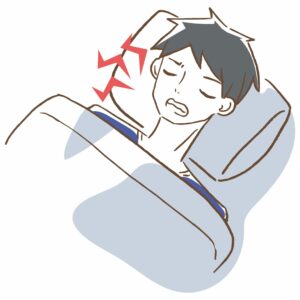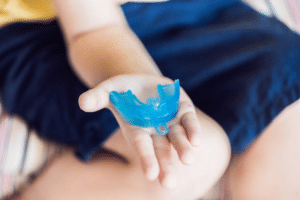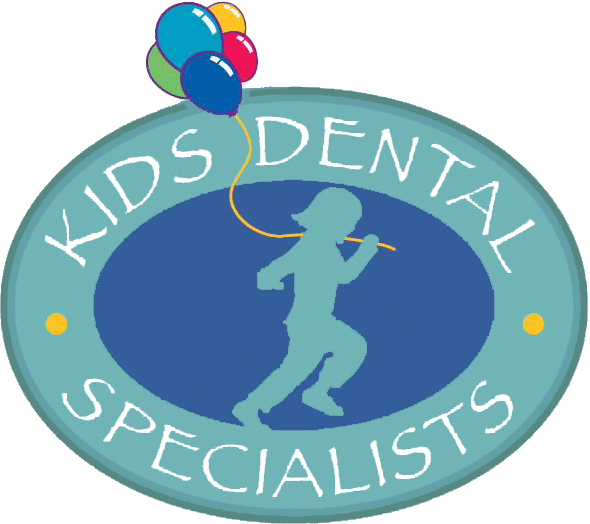Even though young children seem to be wild balls of energy, they still need plenty of sleep in order to grow and develop properly. Depending on their age, they may take naps during the day or simply sleep at night. When your child is asleep, they are the most susceptible to unconscious behaviors such as finger sucking, nail biting, and teeth grinding. Teeth grinding, more formally referred to as bruxism, is one sleep behavior that you will definitely want to keep and eye on.
Bruxism refers to the grinding or clenching of the teeth that normally occurs during deep sleep. It is far more common in children than most people think and it is estimated that 2-3 out of every 10 children grind or clench their teeth. Even though the majority of children will eventually outgrow this habit around the age of 14, bruxism in children shouldn’t be ignored.

If you suspect bruxism, you can also schedule and appointment with your child’s pediatric dentist. Pediatric dentists are able to identify bruxism by evaluating your child’s teeth and testing for signs of sensitivity. They may also ask specific questions to you and your child in order to confirm a diagnosis and determine the cause of bruxism. Depending on the exact cause of bruxism, your child’s pediatric dentist may recommend different treatments.
In some cases, bruxism can be caused by the body’s natural instinct to even out the bite. This is because the transition between primary and permanent teeth causes the bite to be uneven due to the different sizes and heights of teeth. As a result, the body attempts to grind down the taller teeth to make them even with the shorter teeth. This is one reason why bruxism is so common in children.

However, other cases of bruxism can be caused by pain or psychological factors. For example, pain from an earache or teething can cause grinding as a way of relieving the pain, much like rubbing a sore muscle. In these cases, alleviating the pain in other ways can decrease bruxism. Psychological factors such as stress, anxiety, or hyperactivity can also cause grinding or clenching. These factors usually need to be addressed on their own before treating for bruxism. If the cause is psychological factors, then addressing those factors generally alleviates bruxism.

Dr. Leyster is a board-certified pediatric dental specialist. He is recognized as a Diplomate of the American Board of Pediatric Dentistry. He has served as faculty as an Assistant Professor at the University of Southern California School of Dentistry in the Division of Public Health and Pediatric Dentistry. Dr. Leyster belongs to the American Academy of Pediatric Dentistry, American Board of Pediatric Dentistry, California Society of Pediatric Dentistry, California Dental Association, Pacific Northwest Dental Association, and the American Dental Association.





